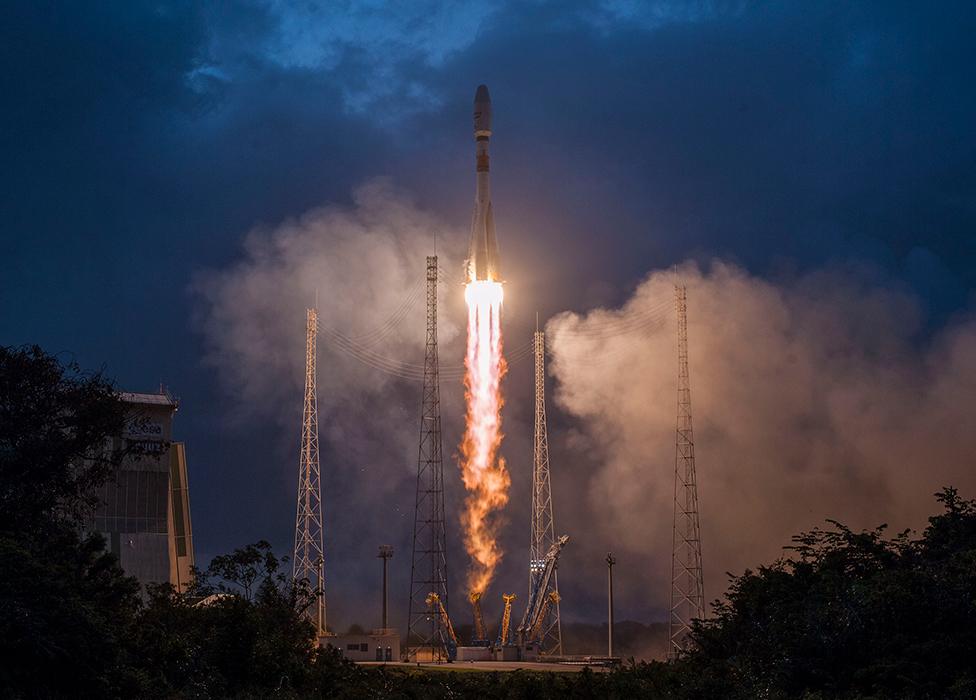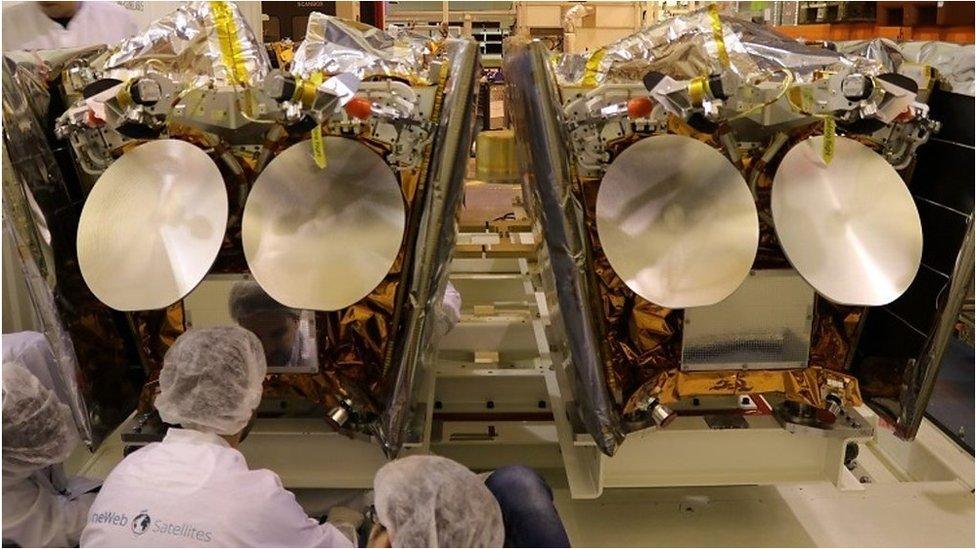Coronavirus: OneWeb blames pandemic for collapse
- Published

OneWeb's largest unsecured creditor is the rocket operator Arianespace

OneWeb, the high-profile London-based satellite start-up, has filed for bankruptcy protection in the US.
The firm, which has been building a network to deliver broadband across the globe, blamed the Covid-19 crisis for its inability to secure new investment.
OneWeb issued a statement, external saying it was laying off most of its staff while it seeks a buyer for the company.
The start-up recently launched the 74th satellite in a constellation planned to total at least 648 spacecraft.
The idea is that this network will provide high-bandwidth, low-latency internet connections to any point on Earth, bar Antarctica.
Rumours of a collapse had been swirling around OneWeb this past week. It had raised £2.6bn to implement its project but experts in the space industry speculated that double this sum would probably be needed to complete the system.
The statement released by OneWeb in the early hours of Saturday, London time, said the company had been close to obtaining financing but that, "the process did not progress because of the financial impact and market turbulence related to the spread of Covid-19".
CEO Adrian Steckel added: "Today is a difficult day for us at OneWeb. So many people have dedicated so much energy, effort, and passion to this company and our mission. Our hope is that this process will allow us to carve a path forward that leads to the completion of our mission, building on the years of effort and the billions of invested capital."
According to the bankruptcy court filing (PDF), external, the largest unsecured creditor is the rocket operator Arianespace, which has been using Soyuz vehicles to loft the satellites for OneWeb. It is owed $238m.

OneWeb has a factory in Florida designed to turn out two satellites a day
OneWeb's plan was first presented in detail to the media at London's Royal Institution in 2015.
Early supporters included Airbus, Intelsat, Bharti Enterprises, Coca Cola, Group Salinas, Hughes Network Systems, and Virgin Group. Softbank became a major investor.
But building satellite constellations is a very expensive undertaking and the history of the sector is littered with companies that also ended up seeking Chapter 11 protection with the US Bankruptcy Court.
Some have managed to pull through - the classic example being Iridium, which launched the first low-Earth-orbit satellite-phone network. It recently put up a second-generation constellation in the sky.
OneWeb is seeking to do the same. As well as successfully launching 74 satellites, it has valuable radio spectrum rights and has built getting on for half of the 44 ground stations needed to operate its constellation. It will hope this progress will prove attractive to a new owner.
OneWeb has been in competition with California entrepreneur Elon Musk's SpaceX company to build a satellite internet mega-constellation. His rockets are regularly putting up 60 satellites at a time.
Amazon founder Jeff Bezos, the world's richest man, is also working on a concept he calls Kuiper.
If no buyer for OneWeb or its assets can be found, the UK government is ultimately responsible for the 74 spacecraft in orbit.
As the licensing state, it will carry the liability if these satellites are involved in a collision.

OneWeb has control rooms in London and Virginia to monitor and command the satellites
Jonathan.Amos-INTERNET@bbc.co.uk, external and follow me on Twitter: @BBCAmos, external